On a sea floor that looks like a sandy mud bottom, that at first glance might appear to be sand and mud, when you look closely and sit there as I do for a while and just wait, all sorts of creatures show themselves, with little heads popping out of the sand. It is a metropolis.
SYLVIA EARLEHold up a mirror and ask yourself what you are capable of doing, and what you really care about. Then take the initiative – don’t wait for someone else to ask you to act.
More Sylvia Earle Quotes
-





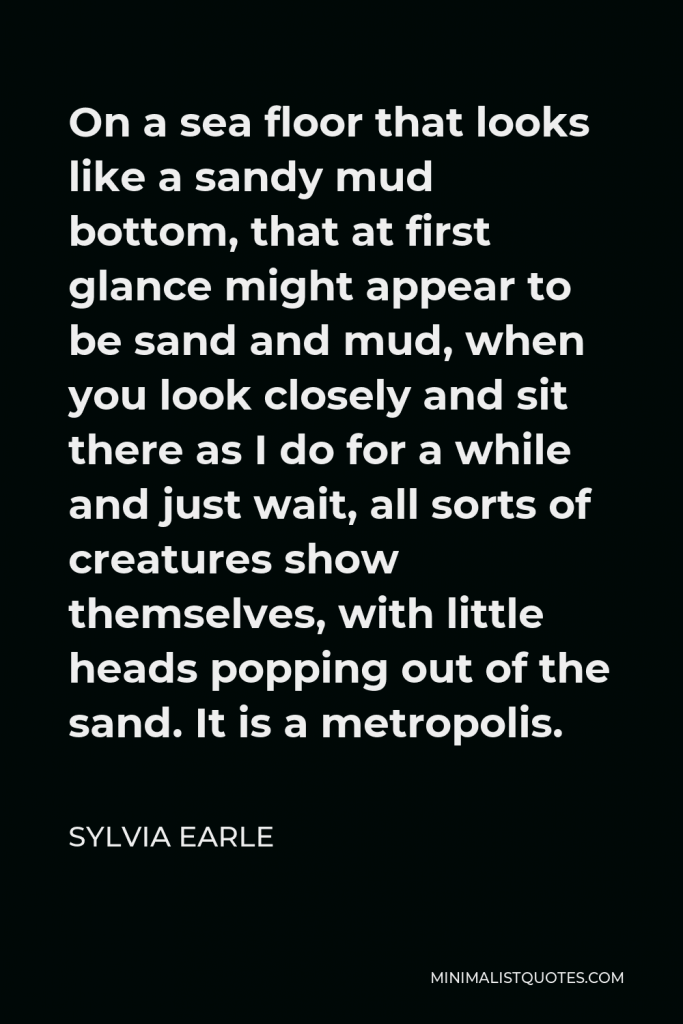

-





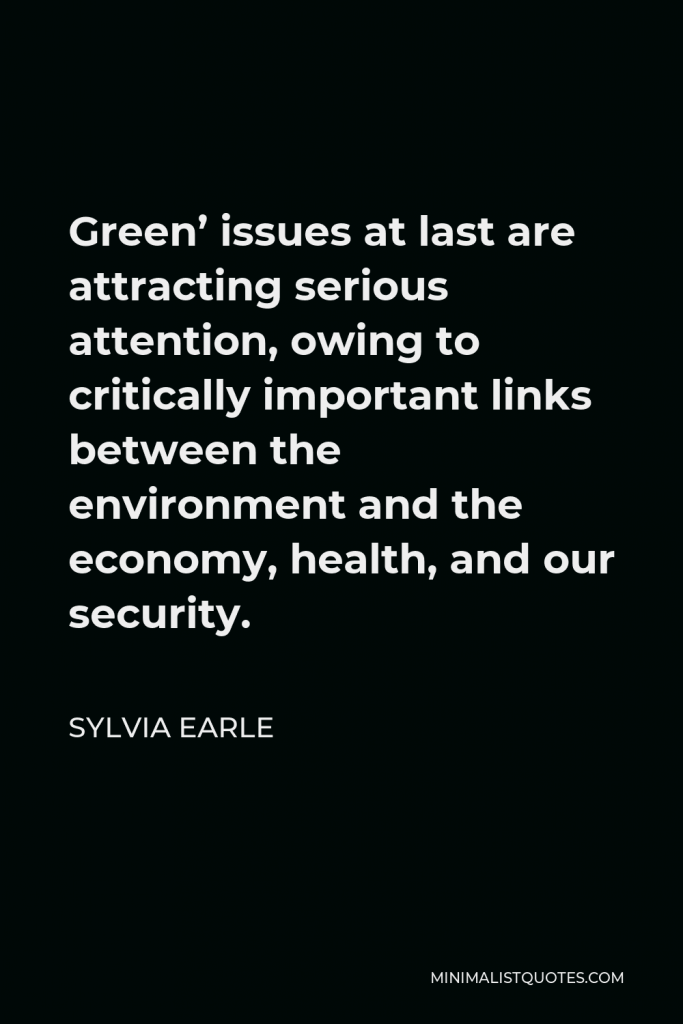

Green’ issues at last are attracting serious attention, owing to critically important links between the environment and the economy, health, and our security.
SYLVIA EARLE -





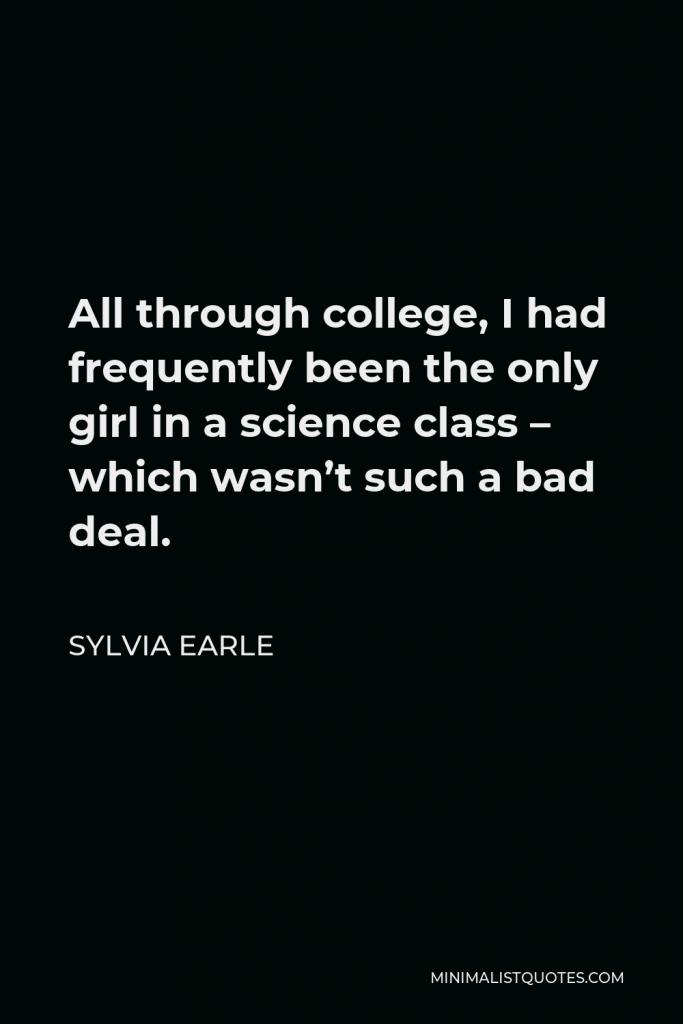

All through college, I had frequently been the only girl in a science class – which wasn’t such a bad deal.
SYLVIA EARLE -





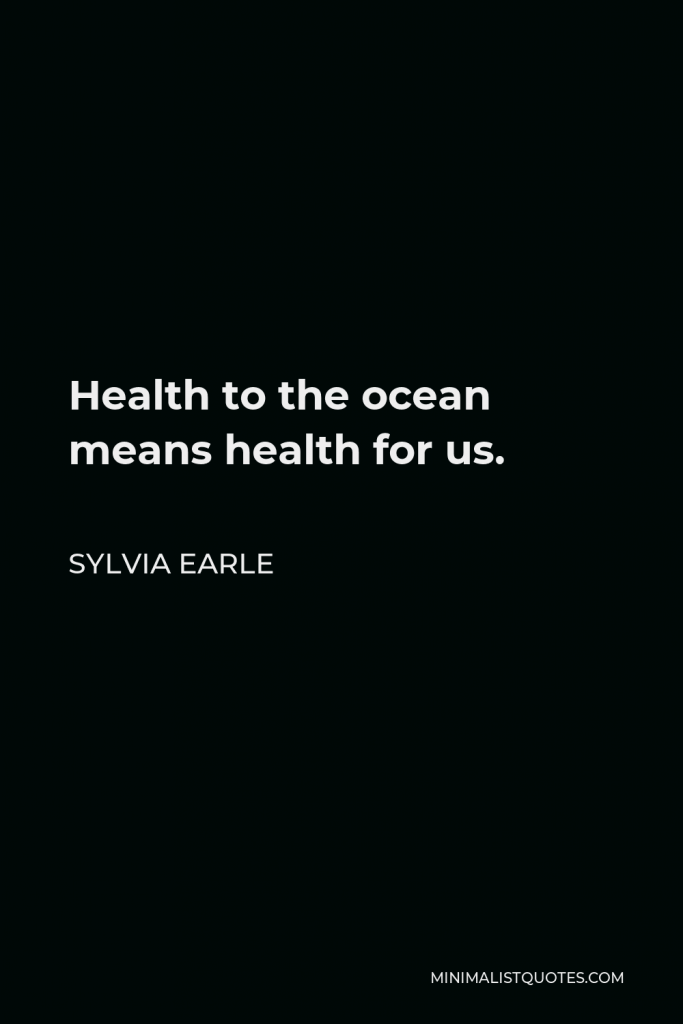

Health to the ocean means health for us.
SYLVIA EARLE -







Any astronaut can tell you you’ve got to do everything you can to learn about your life support system and then do everything you can to take care of it.
SYLVIA EARLE -





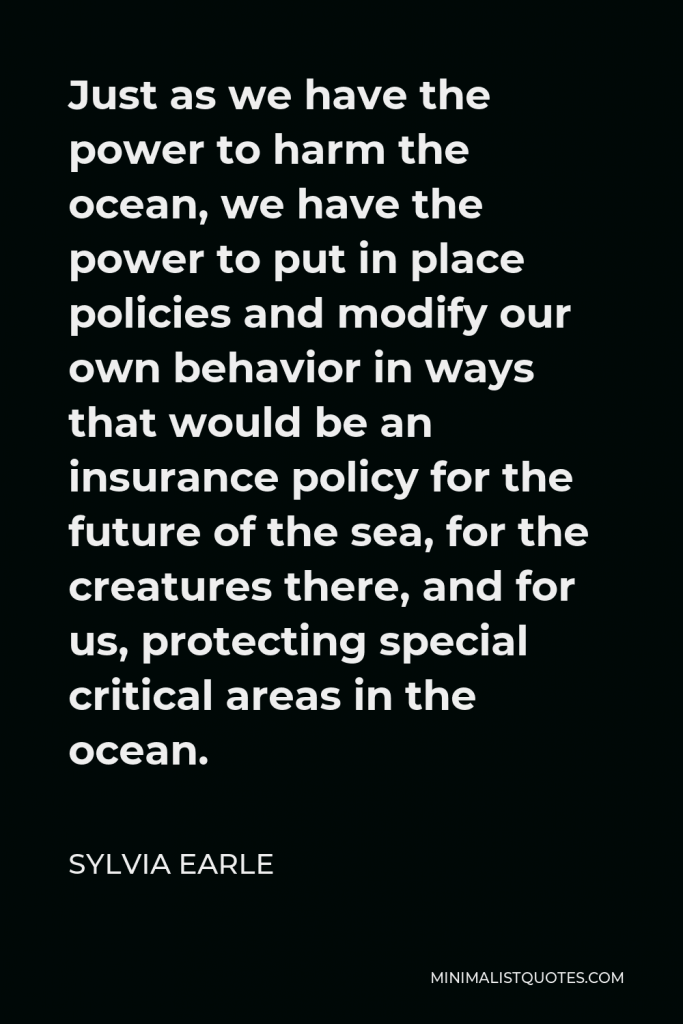

Just as we have the power to harm the ocean, we have the power to put in place policies and modify our own behavior in ways that would be an insurance policy for the future of the sea, for the creatures there, and for us, protecting special critical areas in the ocean.
SYLVIA EARLE -





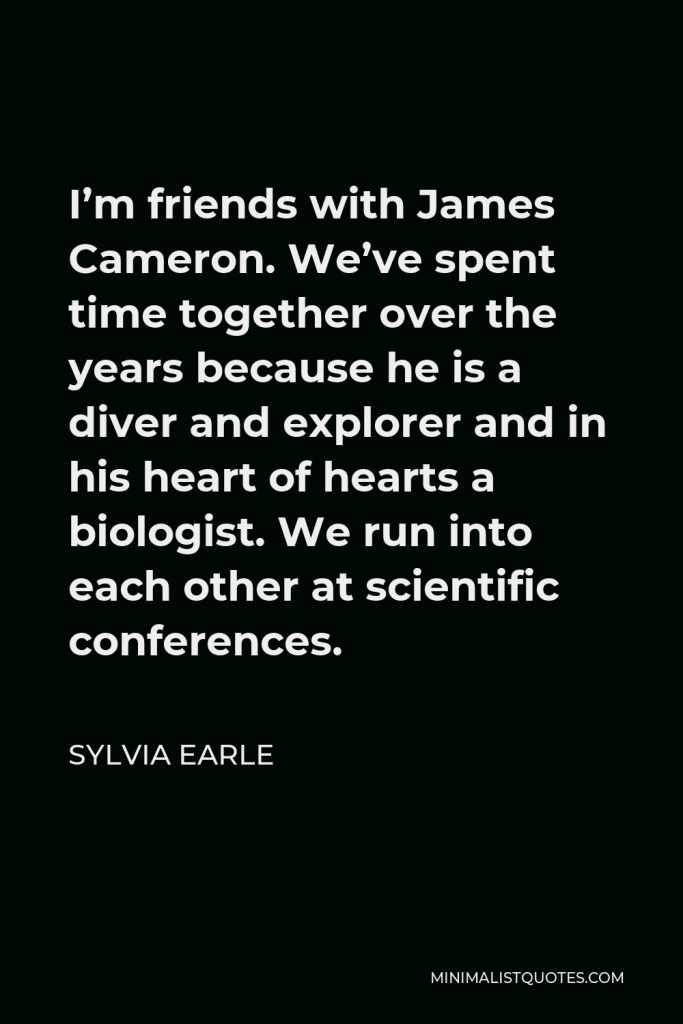

I’m friends with James Cameron. We’ve spent time together over the years because he is a diver and explorer and in his heart of hearts a biologist. We run into each other at scientific conferences.
SYLVIA EARLE -







Hold up a mirror and ask yourself what you are capable of doing, and what you really care about. Then take the initiative – don’t wait for someone else to ask you to act.
SYLVIA EARLE -





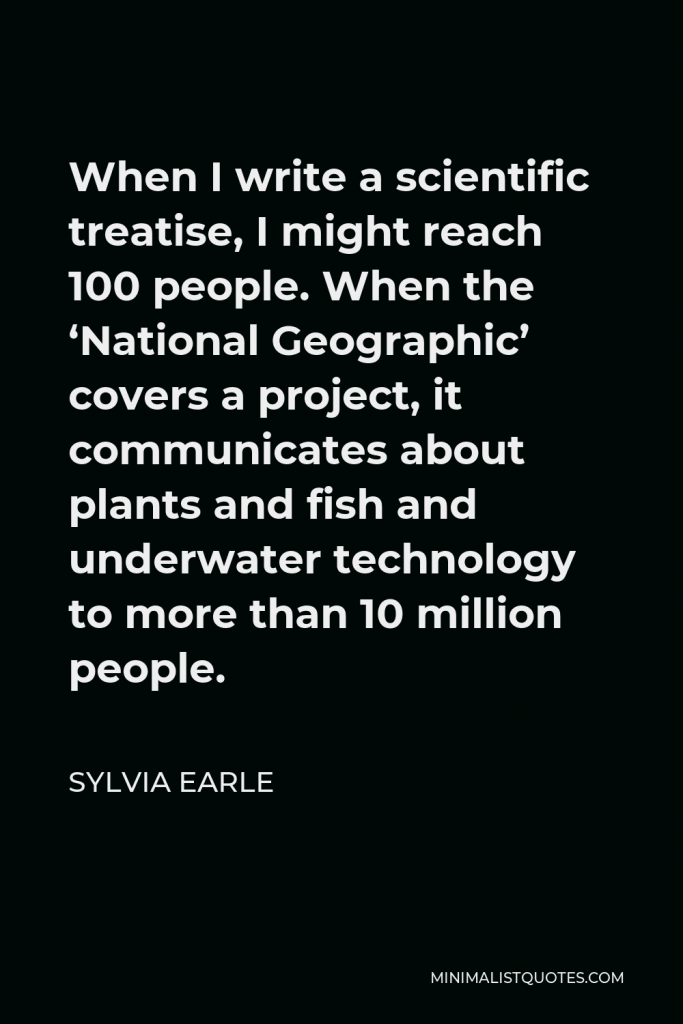

When I write a scientific treatise, I might reach 100 people. When the ‘National Geographic’ covers a project, it communicates about plants and fish and underwater technology to more than 10 million people.
SYLVIA EARLE -







There’s no place that we know about that can support life as we know it, not even our sister planet, Mars, where we might set up housekeeping someday, but at great effort and trouble we have to recreate the things we take for granted here.
SYLVIA EARLE -





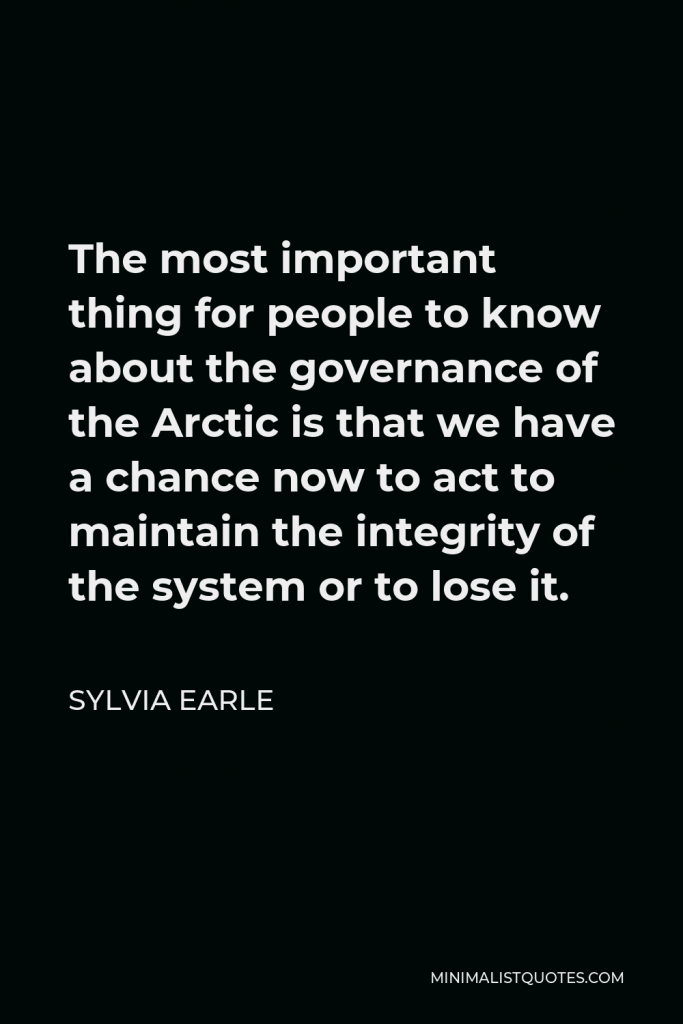

The most important thing for people to know about the governance of the Arctic is that we have a chance now to act to maintain the integrity of the system or to lose it.
SYLVIA EARLE -





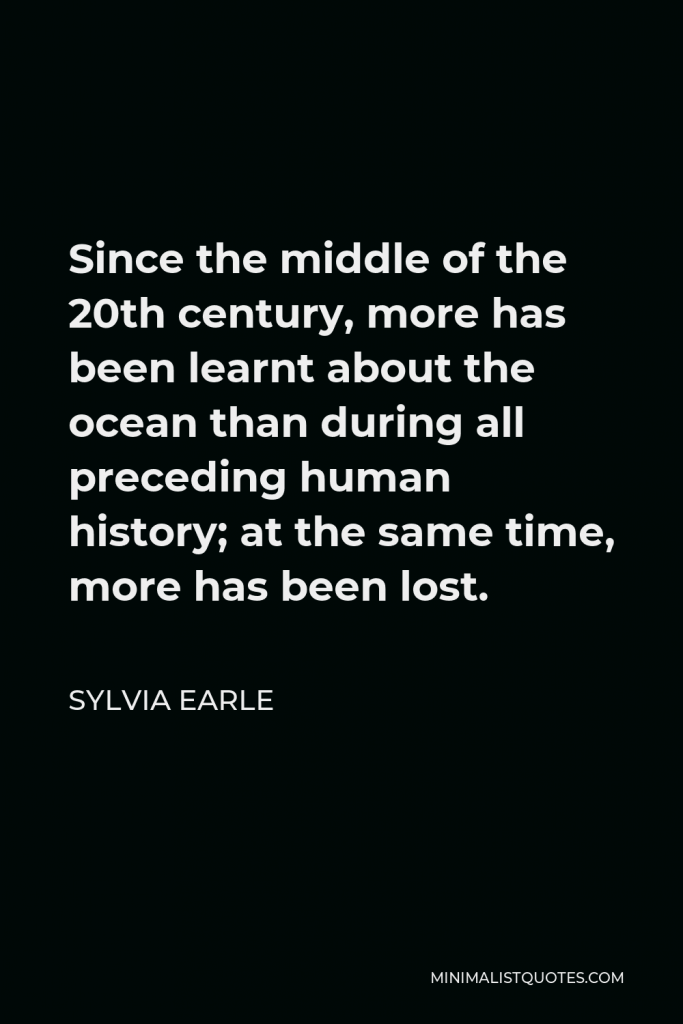

Since the middle of the 20th century, more has been learnt about the ocean than during all preceding human history; at the same time, more has been lost.
SYLVIA EARLE -







They have a lateral line down their whole body that senses motion, but maybe it does more than that.
SYLVIA EARLE -





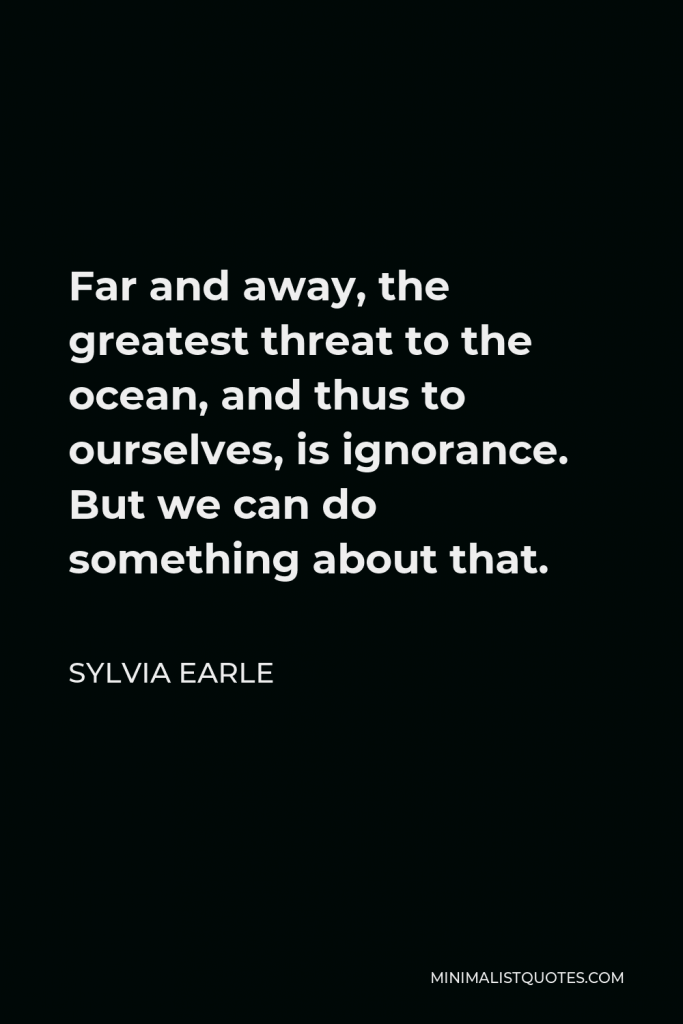

Far and away, the greatest threat to the ocean, and thus to ourselves, is ignorance. But we can do something about that.
SYLVIA EARLE -





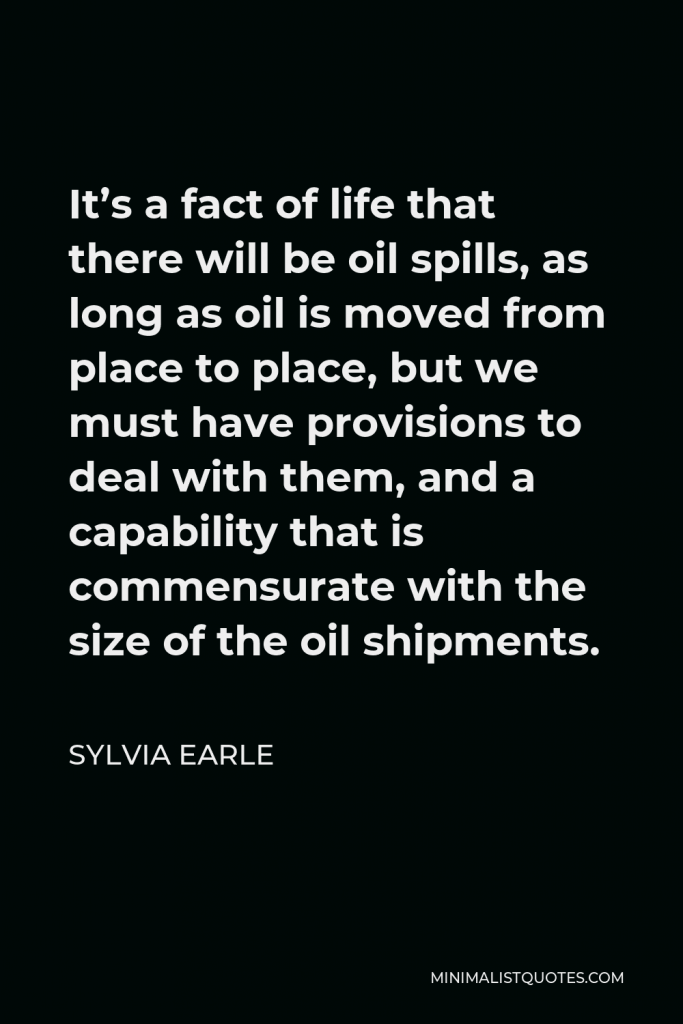

It’s a fact of life that there will be oil spills, as long as oil is moved from place to place, but we must have provisions to deal with them, and a capability that is commensurate with the size of the oil shipments.
SYLVIA EARLE -







No water, no life. No blue, no green.
SYLVIA EARLE







